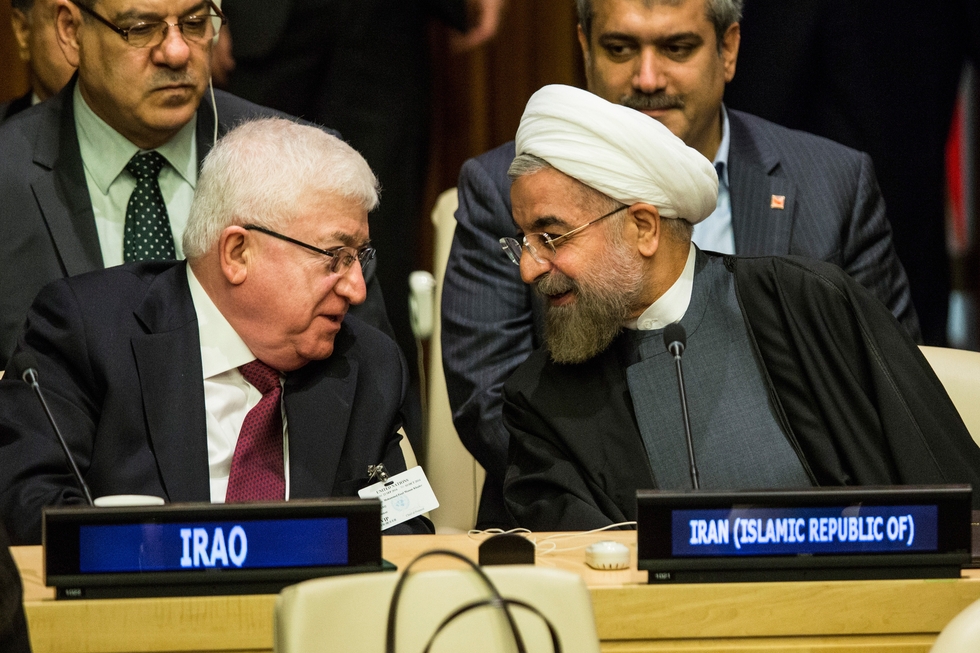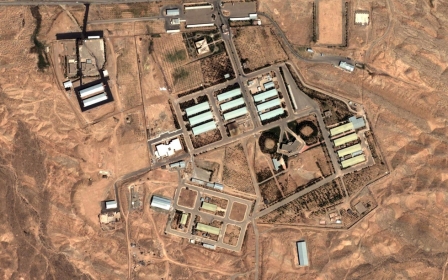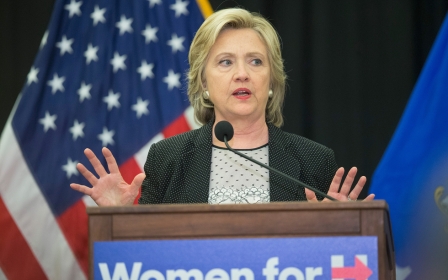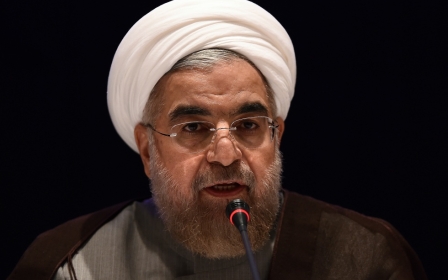Rouhani in New York: Can US and Iran make nice?

This week, Iran’s President Hassan Rouhani is in New York to attend the annual UN General Assembly gathering of world leaders and, simultaneously, to chariot Iran’s nuclear diplomacy toward confidence and trust-building with the West and to dispel fears of a “post-sanctions” Iran in the volatile Middle East.
Rouhani’s agenda is to also convince the audience at home that the nuclear agreement reached in July - known as the Joint Comprehensive Plan of Action (JCPOA) - has solid international backing in light of the growing criticisms from Iran’s hard-liners who control the parliament, which has yet to put its seal of approval on the deal.
In fact, despite his assurances that the majority of Iranian people support the agreement, Rouhani has so far been unable to capitalise on the explicit support of the Supreme Leader, Ayatollah Khamenei, who is the final arbiter on Iran’s foreign decisions and has opted to delegate the agreement’s fate in the hands of parliament and the (inter-agency) supreme national security council.
Khamenei has raised questions about the aspects of the agreement that calls for the suspension instead of annulment of the Iran sanctions, openly wondering if that makes any sense from Iran's vantage. Both the agreement as well as the new UN Security Council Resolution (2231) that have endorsed it contain “snap-back” provisions that make it relatively easy to restore the sanctions in the event of significant Iranian non-compliance. This too has raised some concerns in Iran.
Another concern is related to the temporary limits on Iran’s ballistic missile programme, which have raised the ire of Iran’s military commanders. A five-member special committee to review the JCPOA has turned into a forum for the opponents of the deal, such as the former negotiator Saeed Jalili, who claims that the agreement undermines more than 100 rights of Iran. Chances are the parliament will give a “qualified approval” of the deal, instead of a blanket support which will, in turn, complicate the prospects for the deal. Members of Rouhani’s negotiation team have adamantly rejected the criticisms of JCPOA as unfounded.
Between UN summit and Iran elections
With parliamentary elections approaching next spring, the nuclear issue promises to feature prominently in the approaching campaigns, which is why the reformist supporters of Rouhani are hedging their bets on a smooth implementation of the deal, essentially revolving around a “sanctions-for-nuclear concessions” quid pro quo.
To achieve this objective, Iran and the world powers involved in the marathon negotiations are due to meet again on the sidelines of the UN summit and chief among their agenda is the working mechanism of a “joint commission” set up by JCPOA, which will serve as a dispute resolution forum to ensure compliance. Any failure of the JCPOA for one reason or another will be a net political loss for Iran’s reformists and a boon for their hard-line opponents.
Meanwhile, Rouhani’s other agenda, reflected in his interviews with the US media on the eve of his trip, is to disseminate the image of Iran’s power as a common good for the region and to shore up support for both the fight against ISIS extremists wreaking havoc in Iraq and Syria, as well as to push for a political solution to the Syrian quagmire, given Iran’s alliance with the embattled government in Damascus and the unconfirmed reports of an emerging tacit consent between US and Russia to end the quagmire that has resulted in a tsunami of refugees in Europe.
Undoubtedly, the Obama administration, which has found an appropriate partner in negotiations in the Rouhani administration and its foreign policy team led by the US-educated foreign minister, Javad Zarif, can do a lot to assist with Rouhani’s aforementioned agenda.
For instance, Obama can nod to Iran’s role in a negotiated settlement of the bloody Syrian conflict, assure Tehran of the US’s commitment to lift the sanctions as called for by the agreement, and raise the possibility of a “post-containment” select cooperation with Iran on issues of mutual interest, such as the struggle against ISIS and extremism, growing narco-trafficking, and the future of Iraq and Afghanistan.
Afghan danger
Concerning Afghanistan, whose president has been an enthusiastic supporter of the nuclear deal, there are alarming signs of ISIS’s infiltration that should not be ignored. With the impending 2016 planned departure of US forces from Afghanistan, the spectre of rising instability and chaos there looms, providing all the more reason for Tehran and Washington to open a channel of communication on Afghan security.
Indeed, as Rouhani in his recent interview with the US media stated, the nuclear deal can be a first step toward the reduction of hostilities between the US and Iran. It is time for his American counterpart, President Obama, to echo this sentiment and to articulate a more optimistic vision of US-Iran relations, instead of the familiar language of “coercive diplomacy” that has been a staple of US Iran policy during the past 36 years.
Sadly, there is no American road map for normalisation of relations with Iran and, yet, the enhanced international prestige of Iran as a result of the nuclear deal is bound to make it harder for US decision-makers to put this to the backburner indefinitely.
- Kaveh Afrasiabi, PhD, is a former political science professor at Tehran University and the author of several books on Iran’s foreign policy. His writings have appeared on several online and print publications, including UN Chronicle, New York Times, Der Tagesspiegel, Middle East Journal, Harvard International Review, and The Guardian among others.
The views expressed in this article belong to the author and do not necessarily reflect the editorial policy of Middle East Eye.
Photo: Iranian President Hassan Rouhani (R) speaks with Iraqi President Fuad Masum at the United Nations Climate Summit on 23 September, 2014 in New York City. (AFP)
New MEE newsletter: Jerusalem Dispatch
Sign up to get the latest insights and analysis on Israel-Palestine, alongside Turkey Unpacked and other MEE newsletters
Middle East Eye delivers independent and unrivalled coverage and analysis of the Middle East, North Africa and beyond. To learn more about republishing this content and the associated fees, please fill out this form. More about MEE can be found here.





